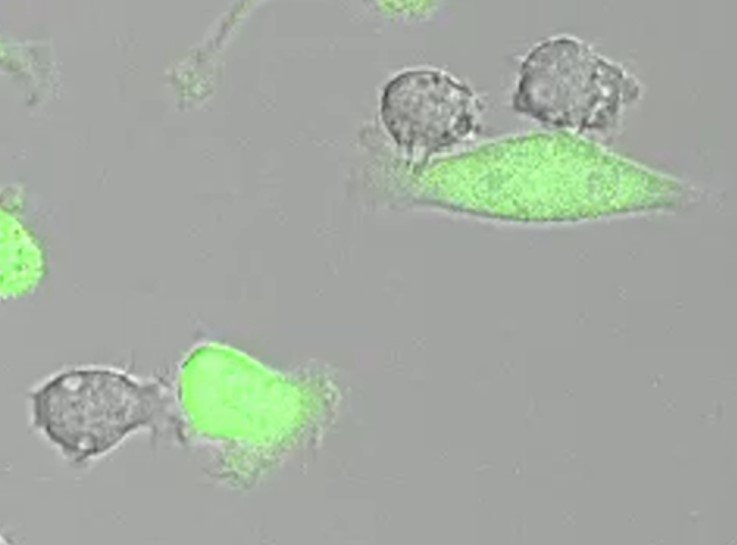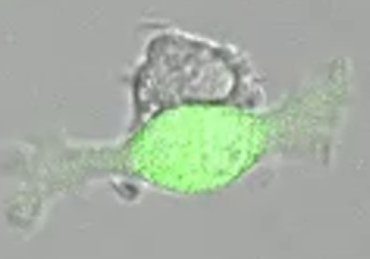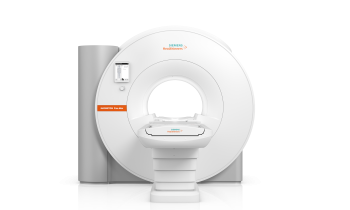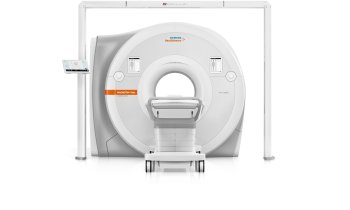
© Manfred Ogris, Magdalena Billerhart, University of Vienna
News • Cancer research
How to break through a tumor's protective shield
A team at the Department for Pharmaceutical Sciences at the University of Vienna developed a therapy concept that could stop tumor growth.
The immune system protects the body from cancer. To protect healthy body cells from its own immune system, they have developed a protective shield: the protein CD47 is a so called "don’t eat me" signal, which tells the immune cells to stand back. Tumor cells exploit this CD47-based protection strategy for evading the immune system, by increasing presentation of CD47 on their cell surface. At the University of Vienna's Department for Pharmaceutical Sciences, a team led by Manfred Ogris developed a therapy concept for programming the tumor cells to produce on their own a CD47-blocking and immune-activation fusion protein. This therapy approach could stop tumor growth.
The researchers present their findings in the journal Molecular Therapy Oncolytics.

© Manfred Ogris, Magdalena Billerhart, University of Vienna
On phagocytic cells, also called macrophages, and other immune cells the ligand for CD47, namely SIRPa, can be found. When SIRPα binds to CD47, this triggers a signal which prevents the killing of the target cell. Most tumor cells also produce high amounts of CD47 and hence prevent being attacked by immune cells. Current tumor therapies using antibodies could block CD47 and at the same time activate immune cells. Nevertheless, serious side effects to healthy organs and blood cells limit this approach.
The novel therapy concept presented here ensures that tumor cells on their own produce a CD47-blocking and immune activating protein. For this, scientists introduced a DNA gene vector into the tumor cells. DNA sequences were designed to ensure the expression of a protein with maximized CD47-blocking and immune activating properties. After successful DNA transfer, tumor cells produced and secreted the protein into the tumor vicinity.
Results: CD47 was successfully blocked not only on tumors cells producing the fusion protein but also on the tumor cells in their vicinity. Tumor growth was stopped and one third of tumors were eradicated, when applying this therapy in an in vivo model of highly malignant human breast cancer. "We observed a tumor infiltration of macrophages, which was due to the therapy. Also, other immune cells recognized and destroyed tumors cells marked with fusion protein. We were relieved, that we did not observe any organ related toxicities", Manfred Ogris explains. "Next we aim at a further optimization of this approach, which should enable further preclinical studies paving the way for a potential new tumor therapy."
Source: University of Vienna
15.10.2021











